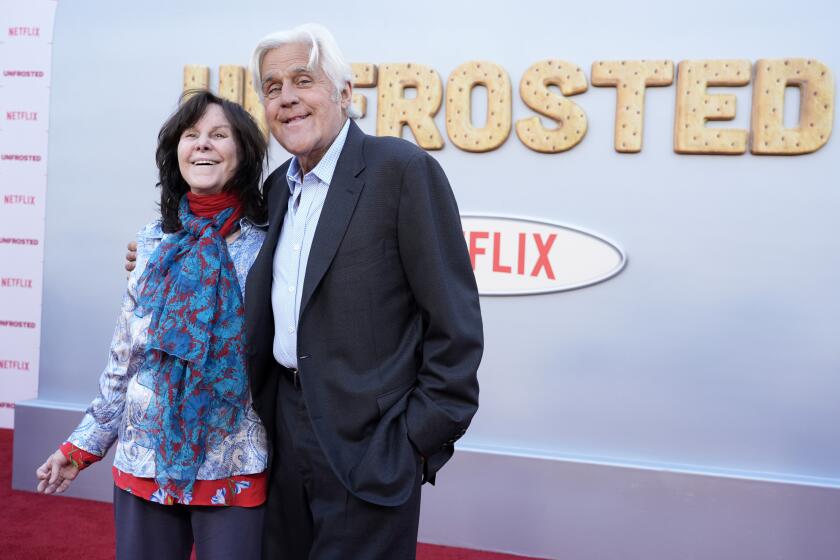Gershwin Tribute: Strike Up the Tape Recorders
- Share via
Professional recordings of L.A. stage productions are few and far between. But MCA Records is recording “George & Ira Gershwin: A Musical Tribute,” this weekend’s Southland Theatre Artists Goodwill Event (S.T.A.G.E.) fund-raiser for AIDS Project Los Angeles, for an anticipated fall release on cassette and CD.
Although the size of the recording won’t be settled until after it’s been recorded, it’s possible--given the three-hour length of the event--that it could become the biggest single recorded compilation of Gershwin material since Ella Fitzgerald recorded a set of five albums in the ‘50s, according to a spokesman for the Gershwin estate.
Last year’s S.T.A.G.E. event, an Irving Berlin program without a recording, raised $180,000 for the Necessities of Life program sponsored by AIDS Project L.A. This year, the Gershwin Foundation donated $5,000 to the cause, on top of forgoing royalties for the show and reducing standard royalties for the recording. More money for the cause is expected to come in from the recording. Producer David Galligan calls the S.T.A.G.E. events “the oldest continuous AIDS benefit in the world.” This will be the ninth since Nov. 1984.
The Gershwin show will conclude today with a 2 p.m. performance at the Embassy Theatre in downtown Los Angeles. As of press time, matinee tickets were still available, though the Friday and Saturday evening performances in the 1,800-seat hall are sold out. A third performance was added this year because last year’s evening performances were SRO.
This year’s program features a cast of 83, including dozens of the city’s most illustrious musical performers. Fortunately, “Gershwin wrote a lot of duets,” said producer David Galligan, so a dozen numbers will accommodate 24 performers. “If they all had solos, you’d have to bring your pajamas.”
PRYOR PLAYHOUSE: The Hollywood Playhouse is no more. Call it the Richard Pryor Theater.
When Mitzi Shore, who also owns the Comedy Store, bought the mid-sized Hollywood Playhouse in 1988, she named the auditorium inside the structure after Pryor. But the Pryor name was seldom used, because Shore used other names for the full building.
First it was the Comedy Store Playhouse. Then, after too much confusion with the Comedy Store itself, the name was switched back to the Hollywood Playhouse.
Now, the building not only will be named solely after Pryor, but it also will be dedicated more to the development of future Pryors. Shore’s current plans for the space, reports building manager George Drew, are to focus on the development of work by young African-American comics (including Eddie Griffin, who opened Thursday) into more extended theater pieces. Drew said the theater environment--where the comics need not compete with the bar--can provide a more hospitable arena for thought-provoking material than the club. Unlike the club, the theater also is open to underage fans of some of these comics.
Shore will take a more active role in co-producing shows at the Pryor, Drew said. Most of the recent shows that have used the space have been rentals.
PHANTOMANIA: The announcement that “The Phantom of the Opera” will close on Aug. 29 pushed the production’s advance sales up $400,000 in one week, to $4.6 million. A spokeswoman for the show said advance sales hadn’t risen significantly in the past year.
Expect another boom when the last block of tickets goes on sale--a date not known at press time. Tickets currently are on sale through May 16.
MEMORIES OF HAILEY: Memorial services for playwright Oliver Hailey, best known for “Who’s Happy Now?” and “Father’s Day,” will be held at the Met Theatre, on Oxford Avenue near Santa Monica Boulevard in Los Angeles, at 4 p.m. next Sunday.
Hailey was one of the most prominent writers at the Mark Taper Forum during its salad days. But shortly before he died on Jan. 23 at his Studio City home, he asked his family not to try to fill the Taper for a memorial service; a sub-100 seat theater would do just fine. The Met fills the bill.
When Hailey died, he was surrounded by his family and at least one friend, playwright George Furth, who insisted on a parting round of applause. According to Furth, the sound of both hands clapping was music to Hailey’s ears--and he opened his eyes just long enough to acknowledge it.
Times theater critic Sylvie Drake also contributed to this column.
More to Read
The biggest entertainment stories
Get our big stories about Hollywood, film, television, music, arts, culture and more right in your inbox as soon as they publish.
You may occasionally receive promotional content from the Los Angeles Times.










